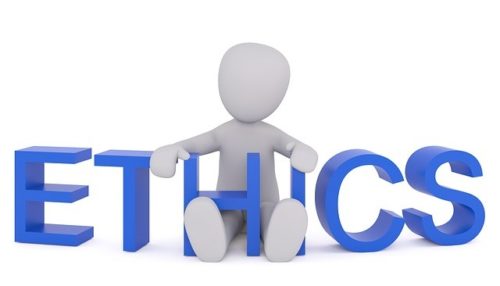-
Online Civility and Professionalism for Attorneys Online Civility and Professionalism for Attorneys In the realm of legal practice, the issue of incivility among lawyers is a multifaceted concern, with varying beliefs about its prevalence and causes. Some point to the portrayal of lawyers in media and a blurred line between assertiveness and rudeness, while others blame technology and the divisive state of public discourse. Several states, like New York, Utah, and Illinois, have established programs and hotlines to address ethics and professionalism. Surveys suggest that a majority of lawyers perceive their colleagues as civil, yet many still report experiencing uncivil behavior. In California, attorney guidelines emphasize civility and respect in communications and interactions within the legal system. To counter incivility, legal professionals are advised to maintain written records of inappropriate conduct, engage in open discussions with opposing counsel, and seek guidance from mentors or senior attorneys. Additionally, online civility presents distinct challenges due to anonymity, potential miscommunication, and the risk of harassment. Lawyers are encouraged to be cautious about sensitive topics and consider legal actions if harassment occurs. Agenda/ Obejectives - Understanding the Roots of Incivility and Professionalism - 6 Minutes - State Initiatives and Ethics Programs - 8 Minutes - Survey Insights and Lawyer Perceptions - 7 Minutes - Attorney Guidelines of Civility and Professionalism - 11 Minutes - Challenges in Online Civility and Professionalism - 8 Minutes - Strategies for Promoting Civility and Professionalism - 10 Minutes - Privacy and Sensitivity in Legal Practice - 8 Minutes - Taking Action Against Online Incivility and Professionalism - 7 Minutes
-
The Fifth Amendment’s Essential Role in Offshore Audits
-
Immigration Basics: Coming to America and Staying
-
Pre-judgment Writs of Attachment / Possession In this timely, and compelling, program, attorney, Craig Stein presents “Pre- judgement Writs of Attachment and Possession”. The program begins with and explanation of attachment and an overview of the statutory framework. The program continues with a discussion on attachment against an individual, recoverable costs, and supporting the application. Mr. Stein then explains the tangible and intangible benefits. The program concludes covering defending attachment applications. This program is a must for any attorney. Agenda
- What is attachment
- Statutory framework
- Attachment against an individual
- Recoverable Costs in the Writ Application
- Ex-Parte Writ
- Supporting the application
- Intangible Benefits
- Tangible Benefits
- Writs of Possession
- Defending Attachment applications
-
Information Technology for Lawyers In this timely, and compelling program, attorney Russell Jackman presents “Information Technology for Lawyers”. Mr. Jackman begins the program explaining how and why to update a law office computer system and uses windows as an example. The program continues with an overview of backups, cloud services, and firewalls. Mr. Jackman then discusses security tips and case management systems. Attorney Jackman concludes the program going over recent IT trends and fads. This program is for any attorney who has a computer. AGENDA:
- Upgrading Office System
- Windows
- Backups
- Cloud Services
- Antivirus/Firewalls
- Security Tips
- Case Management Systems
- Trends and Fads
-
Introduction to Psychiatric Malpractice In this timely and compelling CLE program, attorney Gregory Radomisli presents, Introduction to Psychiatric Malpractice. The program begins with an introduction to psychiatric malpractice and the duty of care that is involved. Mr. Radomisli continues the program with a discussion on the types of the general cases involved. Mr. Radomisil then presents the principles of medical malpractice as applied to psychiatric care. The program concludes with an explanation of specific cases and the law involved. This program is for any attorney. Agenda:
- What is Psychiatric Malpractice
- Duty of Care
- Types of cases in general
- General Principles of Medical Malpractice as Applied to Psychiatric Care
- Specific Cases
- Voluntary and Involuntary Hospitalization
-
Benefiting from New Markets Tax Credits In this timely and compelling CLE program, attorneys, Julia Fendler and Trey Parker present “New Market Tax Credits”. The New Markets Tax Credit (“NMTC”) Program is administered by the Community Development Financial Institutions Fund (the “CDFI Fund”) of the United States Department of the Treasury. The NMTC Program is a federal statutory program, created in 2000 and currently extended through 2025, that is designed to encourage capital investment in low-income communities that have had inadequate access to capital. It is codified in Section 45D of the Internal Revenue Code. This program is for any attorney. Agenda:
- Program Basics
- Major Players and Definitions
- Application and high level NMTC allocation facts
- What can NMTC proceeds be used for?
- Project Requirements
- Secondary criteria
- Typical Transactions
- What Other subsidies work with NMTCs?
- Conclusion
-
Staying Safe and Sound - Maintaining A Work/Life Balance in Uncertain Times We know that you are most likely being bombarded with messages about the Coronavirus, whether that be on television, social media, or in your community networks. At uncertain times like this, anxiety, stress, fear and negative thoughts can easily take control. You may be worried about being in crowds, your loved ones, your seniors, your office, your clients, your finances or how to manage whatever the future holds as we prepare to return to the “new normal” in our personal and professional lives. The question facing everyone in the legal profession is compelling and far-reaching: “Will I ever be able to maintain a work/life balance “? Recent studies have shown that there has been a dramatic increase in impairment due to alcoholism, addiction and mental health disorders among members of the legal profession. The statistics are compelling and clearly indicate that 1 out of 3 attorneys will likely have a need for substance use or mental health services at some point in their careers. Accordingly, unexpected events like those we are facing as a society will have an even greater impact on lawyers and those who work with them. Agenda:
- The prevalence rates of impairment in the legal profession due to substance use and mental health issues prior to COVID-19.
- Causes and symptoms of depression, stress and anxiety
- The impact of COVID-19 crisis on mental health issues and the role isolation plays
- Fear associated with the uncertainty surrounding the future of the legal industry
- Well- being strategies to reduce or alleviate these conditions
- Tips for maintaining a healthy and productive work/life balance
- Ethical dilemmas created by the Coronavirus crisis, including remote supervision of attorneys and staff, record and timekeeping, data security and confidentiality in the remote office setting.
- Why legal professionals are at higher risk to develop mental health and substance use disorders
- Challenges and barriers facing legal professionals from seeking help
- The free, confidential services provided by Lawyers Assistance Programs to lawyers, their family members, judges and law students
- The role that education plays in breaking the stigma and fear associated with addiction and mental illness in the legal profession
- Resources available to both lawyers and support staff with emphasis on COVID-19 issues
-
Attorney Licensure and the Impaired Professional
-
The Impact Of Internet and Sports Betting for Lawyers
-
Louisiana 4 Credit Bundle with Ethics and Professionalism - All Courses Approve by Louisiana
-
North Dakota 15 Credit Bundle with 3 Ethics Bundle Courses Include: Bundle Courses: Criminal Mitigation: Pre-Pleas & Pre-Sentencing Strategies (1 General Credit) Borderline Personality Disorder: Pre-Plea & Pre-Sentencing Mitigation Strategies (1.25 General Credits) Is That a Worker or an Employee? Questions & Answers on Worker Classification (1.25 General Credits) No One Makes It Out Unscathed: The Effects of Personal Trauma and Stress On Our Lives (1 Ethics Credit) Intermediate Topics: Title IX (1.5 General Credits) Pre-sentence Investigation (PSI) Critique: Mitigation as Counter Strategy in Child-Pornography Cases (1.25 Credits) Anti Money Laundering for Business Lawyers (1.25 General Credits) Entity Formation 101 (1.25 General Credits) The Art and Science of Hourly Billing (1 Credit) A Lawyer's Guide to Raising Capital (1.25 General Credits) Philosophy of a Business Legal Counselor (1 Credit) Ethics Compliance for Solo Practitioners (1.25 Ethics Credits) Introduction to Non-Profit Law (1.25 General Credits)
-
Unfair, Deceptive, or Abusive Acts or Practices (UDAAP)
-
In this timely, and compelling, CLE program, attorney Michael J. Deblis Presents, “Anatomy of a Civil Tax Controversy” Join attorney Deblis as he walks you through the anatomy of a civil tax controversy from A through Z. This program will cover each step in the process, and will take a closer look at what to do during an eggshell audit. Other topics to be discussed include cases typically recommended for prosecution, attorney-client privilege in the tax realm, Kovel Agreements, IRS Appeals, and more. This program is a must for any attorney Learning Objectives In-depth overview of the anatomy of a civil tax controversy from A through Z Best practices for walking your client through an eggshell audit A Review attorney-client privilege in the tax realm Discuss the use of a Kovel Accountant and drafting an airtight Kovel Agreement A Comprehension of the IRS Appeals Process Evaluate the hazards of litigation
-
Welcome to NCAA & Name, Image, Likeness – Updates & Anarchy in America! The last four years have been a watershed moment in amateur college sports. From the possibility of losing eligibility for pursuing endorsement offers in 2019 to signing multi-million dollar deals in 2022 this is a new era for student-athletes. Sports lawyers will learn about how we got here and how the intersection of NIL deals, the NCAA Transfer Portal & Boosters have changed the college sports landscape. And we know this much…where we are now and what is allowed or not allowed today will change rapidly and frequently. It will be critical for lawyers to stay up to date as the NCAA, federal legislators and states continue to jockey for position in controlling the direction of college sports.
-
Elimination of Bias in the Legal Profession: Both Personally and Professionally This program is designed to provide a comprehensive understanding of laws regarding bias and discrimination, and how they apply specifically within the legal profession, but overlap with a lawyer's personal life. Participants will learn about the latest developments in state and federal laws governing bias and discrimination, and will be exposed to relevant practical examples of bias and discrimination under state and federal law. Through the program, participants will develop the ability to identify not just overt gender bias, but also subtle gender bias, stereotyping, and prejudices. The ethical rules that apply to exhibiting bias and discrimination in a work setting, as well as dealing with clients and potential clients will also be covered. The agenda will include strategies to eliminate and prevent bias within the workplace and a review of tips for creating an inclusive culture. Agenda:
- Introduction: Welcome and overview of the seminar's objectives and key topics to be covered.
- Developments in State and Federal Laws: A review of recent developments and updates in state and federal laws related to bias and discrimination and their implications for the legal profession.
- Practical Examples of Bias and Discrimination: Discussion of real-life scenarios and case studies that illustrate bias and discrimination within the legal profession.
- Identifying and Addressing Bias: Techniques for identifying and addressing overt and subtle bias, stereotyping, and prejudices in the workplace and beyond.
- Ethical Rules and Responsibilities: An overview of the ethical rules and responsibilities that apply to exhibiting bias and discrimination in the legal profession, including how to interact with clients and potential clients.
- Strategies for Eliminating and Preventing Bias: Discussion of strategies and best practices for eliminating and preventing bias within the workplace, including tips for creating an inclusive culture.
- Summary of key takeaways and next steps for attendees to continue learning and implementing the information covered in the seminar.
-
Microsoft Office 365 For Attorneys The Office 365 Groups feature can be beneficial to lawyers as it provides a centralized location for collaboration and communication among team members working on a matter. By creating a Group, attorneys, paralegals, assistants, and support staff can use a shared inbox to discuss the matter, add events and deadlines to a shared calendar, collect resources and research in OneNote, and upload documents to a shared document library for collaboration. This can improve efficiency and productivity by allowing team members to access all necessary information from wherever they are, on any device with internet access. Additionally, outside co-counsel or experts can be added to the Group as well, making it easier to collaborate with external parties. Finally, the Office 365 Forms feature can be used to create forms and quizzes for client input, which can help attorneys better understand and meet their clients' needs. AGENDA
- Introduction to Office 365 Groups and its benefits for lawyers
- Creating an Office 365 Group for a matter
- Using the shared inbox for communication
- Adding events and deadlines to the shared calendar
- Collecting resources and research in OneNote
- Uploading documents to the shared document library
- Collaborating with outside co-counsel or experts
- Using Office 365 Forms for client input
- Conclusion and summary of the benefits of Office 365 Groups for lawyers
-
Alaska 3 Credit Ethics Bundle Attorney, Kyle Robinson, Esq. presents “Attorney Conduct, Ethics,and Professionalism”. In this riveting and compelling program, Attorney, Kyle Robinson explains the Rules of Professional Responsibility and Ethical rules attorneys must know. This CLE program is a broad overview of the rules and explains ethical nuances. Mr. Robinson starts the discussion with the history of the Model rules and then discusses the lawyers preamble. He then systematically goes through important ethical rules and dissects the meaning of each rule. Timely subjects such as social media concerns and investigators are covered. The programs also covers, misconduct, communication, and misrepresentation. This three Credit program is a must listen for any attorney who wants to expand their knowledge of ethics and professionalism and earn CLE credits along the way!
-
Trust Owned Life Insurance: The Audit Process In this timely and compelling CLE program, Attorney Kyle Robinson interviews Tom Henske on the Audit Process for a Trust Owned Life Insurance. They discuss who may be a trustee and the responsibilities of trustees and the risks they may face in managing accounts for clients. They continue the program covering the Prudent Investor Act and how it is applies. Next, Mr. Robinson and Mr. Henske review red flags that must be identified in existing policies, and how to deal with them in a legal way. Their final topic discusses the evaluation process and how the audit takes place and the importance of the audit evaluation. This program is must for any attorney who wishes to learn more about life insurance, trust, and the audit process. Agenda
- Trust Owned Life Insurance Overview why important to attorneys
- Trustees Duties
- Uniform Prudent Investor Act
- Common Problems
- Policy Management
- The Audit Process
- Solutions
-
Second Circuit Court of Appeals: Practice and Procedure In this compelling and timely CLE program, attorney, Jacquelyn Mouquin, presents “Second Circuit Court of Appeals: Practice and Procedure”. Attorney Mouquin begins the program discussing basic terms, jurisdiction, and admission to the court. The program continues to cover preliminary forms, briefing scheduling, and formats of briefs. Attorney Mouquin also goes in depth explaining oral arguments, motions, and petitions. The program concludes and with the difference between civil and criminal appeals. This course is for any attorney wishing to know more about the Second Circuit Court of Appeals.
-
Maine 4.25 Credit General Credit Bundle - All Course Approved in Maine Bundle Courses Include: Copyright for Artists (1.5 Credits) Athlete Agency Law(1.33 Credits) Basic Considerations of Assessment of an Oil and Gas Lease (1.5 Credits)
-
Montana 2 Credit Ethics Bundle - Esquire CLE Provider #1333 Legal Ethical Concerns and Case Law In this timely and compelling ethics CLE, attorney, Kyle Robinson presents “Legal Ethical Concerns and Case Law.” Mr. Robinson begins the program with an overview of the ABA model rules and explains lawyer’s character and residency requirements to practice law. Attorney Robinson continues the discussion explaining ethical rules related to lawyer discipline and lawyer client relationships and Professionalism matters. The course, also, covers rules with regards to advertising and attorney fees. The program concludes with an analysis of confidential information, bias, and conflicts of interest. This program is for any attorney who wants to practice law ethically and professionally. Agenda: Residency Requirements Character Requirements Discipline The Attorney’s Oath Lawyer- Client Relationship Advertising and Solicitation Attorney Fees Confidential Information Bias Conflicts of Interest
-
Keeping Your Client's Trust Even When Things Go Wrong Ever wonder why clients become so upset and you, their lawyer, are faced with explaining so much to alleviate your client's anxiety as you watch trust slipping away? Take this course and find out what's at the source of the client's reaction (sometimes over-reaction) and learn how to reduce and even eliminate these reactions. Learn easy strategies to reduce/eliminate client grumblings and complaints while at the same time creating strong trusting relationships that withstand litigation battles and heated negotiations.
-
Copyright for Artists In this timely and compelling CLE program, Attorney, Gale Elston presents Copyright for Artists. During this thorough and engaging program Attorney Eltson begins with an overview of intellectual property with regards to artists and the history of copyright. The program continues with a detailed discussion of relevant case law and statutes. Attorney Elston also covers fair use and it’s limitations. The program concludes with an explanation of the Visual Rights Act. This program is a must for any attorney. Agenda:
- Overview areas of Intellectual Property law
- History of Copyright
- Difference between published and unpublished work
- Case Law and Statutes
- Ideas vs. Expression
- Elements of Copyright Ability
- Concept of publication
- Exclusive Rights
- Fair Use
- Transfers, Procedure, Damages
- Visual Artist Rights Act
-
Banking for the Non-Banking Attorney In this timely and compelling CLE program, attorney, Kathleen A. Scott presents “Banking for the Non-Banking Attorney”. Attorney Scott starts the program with an introduction to banking regulators and powers. The program continues with an overview of capital requirements and transaction-related issues. Ms. Scott also explains anti-money laundering and economic sanctions. The program concludes with a discussion of other regulatory issues. This program is a must for any attorney. Agenda:
- Principal banking statutes
- Banking regulators
- Basic banking powers
- Capital requirements
- Transaction-related issues
- Anti-money laundering
- Economic sanctions
- Other regulatory issues
-
Athlete Agency Law: Keeping Athletes & Agents on the Field and Out of Jail In this timely and compelling CLE program Attorney and author, Brian Brunkow, presents “Athlete Agency Law: Keeping Athletes and Agents on the Field and Out of Jail”. Mr. Brunkow begins the program with an introduction of agency regulations and agent selection. The program continues with an explanation of a lawyer’s role with regard to representation of an athlete. Attorney Brunkow also covers how an athlete stays compliant with the regulations. The program then goes into an in depth explanation of the applicable regulations and contract issues. This program is a must for any attorney. Agenda:
- Athlete Agency Regs
- Agent Selection
- Lawyer Role
- Athletic Compliance
- Recruit & Pro
- Agent
- Contracts
- Universe of Regulations
- Federal FTC (SPARTA)
- States (UAAA/NON)
- Universities
- Pros
-
In this timely, and compelling, CLE program attorney, Todd Kulkin, presents “Anti Money Laundering for Business Lawyers”. The program begins with an overview of money laundering basics and why attorneys should care about money laundering. The program continues with an in-depth look at statues and regulations. Mr. Kulkin then provides an explanation of shell corporations, special purpose entities, and how to mitigate your risk. The program concludes with an AML transaction checklist discussion. This program is for any attorney who’s in business or has clients in business. Agenda:
- Money Laundering Basics
- Why Care about AML?
- Statutes & Regulations
- Shell Corporations vs Special Purpose Entities
- Know Your Customer (“KYC”) considerations
- Mitigating Your Risk
- AML Transactional Checklist
-
A Lawyer's Guide to Raising Capital In this timely, and compelling, CLE program attorney, Todd Kulkin, presents “A Lawyer’s Guide to Raising Capital”. The program begins with an overview of business fundraising and the types of capital and sources. The program continues with an introduction to private placements. Mr. Kulkin then provides a discussion of new crowdfunding regulations and valuation considerations. The program concludes with how to create a great pitch deck. This program is for any attorney who needs to raise capital or or has clients who need to raise capital. Agenda:
- Introduction to business fundraising
- Types of capital and sources
- Introduction to Private Placements
- Discussion of new crowdfunding regulations
- Valuation considerations
- Creating a great pitch deck
-
Borderline Personality Disorder: Pre-Plea and Pre-Sentence Criminal Mitigation Strategies
Course Description
In this timely and compelling CLE program, attorney and forensic expert Mark Silver presents “Border Personality Disorder: Pre-Plea and Pre-Sentencing Criminal Mitigation Strategies”. Borderline Personality Disorder is among the most important mental health issues for lawyers. As many as 6% of the population carry the diagnosis of Borderline Personality Disorder. It’s important for the criminal defense lawyer to be able to recognize borderline personality disorder in clients and know when to refer the case for an evaluation and how to use aspects of this disorder for mitigation purposes. This program is a must for any attorney. Learning Objectives/Agenda:- Recognize the criteria of Borderline Personality Disorder as among the most important mental health diagnoses with criminal defendants
- Identify the challenges and obstacles of defending such clients
- Examine how the criteria of this disorder can serve as a direct defense and/or mitigating factors in the advocacy process
-
Coronavirus and Your Mental Health In this timely and compelling CLE program, Attorney, Brian Quinn presents, “Coronavirus and Your Mental Health: A Lawyer’s Guide to Coping with Isolation, Anxiety, and Fear in Uncertain Times”. Mr. Quinn begins the program with a discussion on mental health statistics and symptoms of depression and stress factors. The program continues with an overview of dealing with solitude, anxiety, and fear. Mr. Quinn then explains ethically challenges and some warning signs. The program concludes with challenges of seeking help and how lawyers can seek help. This program is for all attorneys. Agenda
- Mental Health Statistics
- Symptoms of Depression
- Stress Impact and Factors
- How to Distress
- Solitude and Loneliness
- Dealing with Anxiety
- Dealing with Fear
- Ethically Challenges
- Warning Signs
- Challenges with Seeking Help
- How to Seek Help
-
The Burned Out Lawyer- Recognition and Prevention Strategies If there is one word we heard during our journey through the pandemic and continue to hear more than any other term as we navigate into the Post-COVID “new normal” world, it is “burnout.” But what is burnout? What does it look like and feel like? More importantly, what can we do to prevent the normal stress and “lawyer anxiety” so common in our profession from developing into the physically and emotionally draining state known as Burnout? Recent studies have shown that there has been a dramatic increase in impairment due to alcoholism, addiction and mental health disorders among members of the legal profession. The statistics are compelling and clearly indicate that 1 out of 3 attorneys will likely have a need for substance use or mental health services at some point in their careers. Agenda
- The early warning signs of impairment, with special emphasis on stress and burnout.
- Symptoms of stress and burnout that are particularly prevalent among members of the legal profession;
- Discussion will include the basic stress reactions, both physical and psychological; the difference between healthy stress and distress, with emphasis on the impact of the COVID-19 pandemic.
- The transition from distress to burnout and how we can recognize and identify the sources of stress in our lives before burnout develops.
- Guidelines for a “master plan”, including realistic prevention strategies that work.
- Why lawyers and judges are at especially high risk to develop mental health and substance use disorders.
- The free services that Lawyers Assistance Programs provide to lawyers, judges, their family members and law students.
- The barriers that prevent lawyers and judges from seeking the help they need.
- The role that education plays in breaking the stigma and fear associated with alcoholism, substance use disorders and mental illness in the legal profession.






